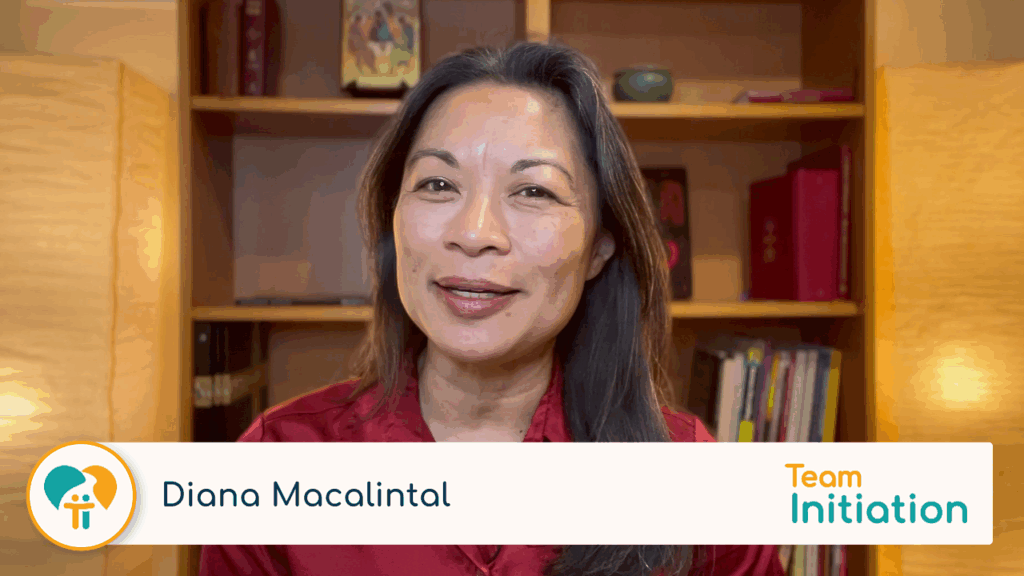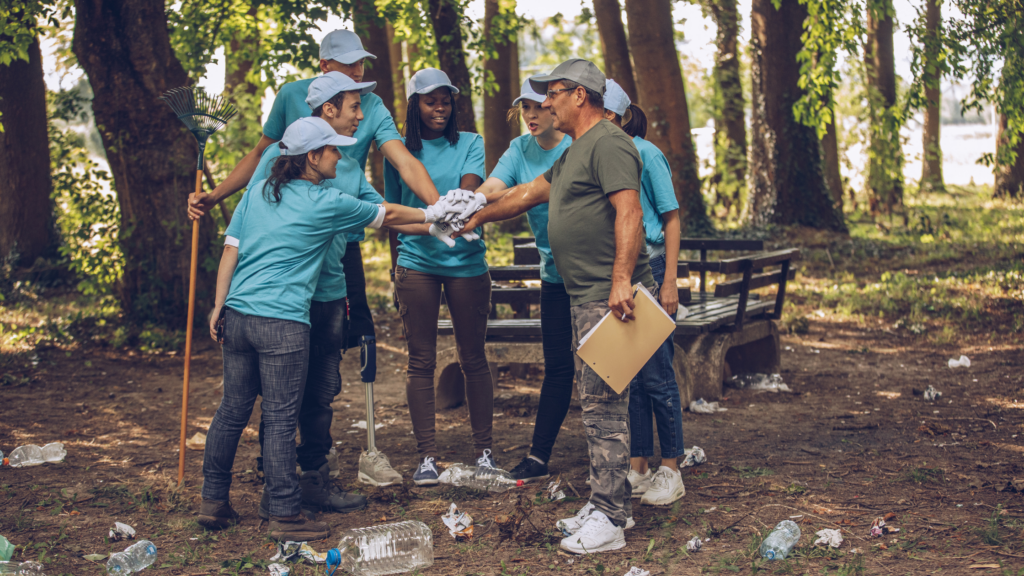We like to think of Christian initiation as a gentle journey. But the truth is a lot of people show up to our parishes deeply wounded. And many times, their pain is not that obvious. On first glance, they may seem perfectly fine. But sometimes, beneath the surface, they are hurting from addiction, loneliness, anger at God, or deep shame. In that moment, they’re not looking for a gentle journey. Nor are they looking for a curriculum. They’re looking for a reason to stay alive.
Last month, a woman came to Sunday Mass at our parish with two kids and asked if they could make their first communion. I don’t do first communion. I don’t really know how it works in our parish. So I almost said: “Registration starts next month — come back then and we’ll get you signed up.” But something about her eyes stopped me. She looked a little lost. Like she hadn’t slept in days.
So instead, I asked her to sit down and tell me her story. She told me about the shelters. The jobs lost. The father of her kids who vanished. She hadn’t been to church in years but something — she didn’t know what — made her walk through our doors that day. What do I offer her first? A class schedule?
Are we always evangelizing?
We say that we are always evangelizing. But we don’t always act like we believe that. We start by asking what doctrines people need to learn. What if, instead, we asked what wounds they’re carrying?
I’ve seen too many parish websites with curriculum lists for the catechumenate that look like we’re teaching a high school theology class. We forget that the first Christians didn’t have a scope and sequence. They had a body broken on a cross. They had a Spirit that showed up as tongues of fire.
If we shape our catechumenates around syllabuses instead of discipleship, we will keep producing well-informed people who quietly disappear after Easter.
The first disciples didn’t form new disciples by registering them for classes. They started in the middle of life: meals, prayer, shared resources, shared pain, awe, worship, spontaneous joy. Acts 2 isn’t a look back at history. It’s a medical manual for healing the wounded.
If we shape our catechumenates around syllabuses instead of discipleship, we will keep producing well-informed people who quietly disappear after Easter.
Break out of the classroom
We are not classroom managers. We are first responders. But, as we said, a seeker’s trauma isn’t always visible. A seeker doesn’t usually show up saying, “Hey, I’m bleeding out here!” More often, they whisper, “I’m fine. I just need first communion for my kids.” If we think our job is to ensure that seeker is doctrinally sound before we address their wounds, we’re not doing what Jesus did.
I’m not pretending this is easy. I’ve been doing this a long time, and I almost sent that hurting mother away because I didn’t know how to “do” first communion for her and her kids. There is no playbook for this. There is only Jesus, who showed us that healing and conversion happens by touch, by presence, by loving people before they understand a thing.
So, what I pray I will do the next time someone walks through our church doors and asks for something, is to ask them to sit down. And tell me their story. And then shut up and listen.
Because sometimes, that’s the moment that saves them.
What would you do in that moment?
Have you ever been in a situation where someone asked for a sacrament or something else and you weren’t sure what to say? Have you felt stuck trying to come up with the right response?
Leave a comment and share your story. We need each other to figure out how to live this in real time, not just in theory.
👇 Scroll down to the comments — I’d love to hear what’s on your heart.



















Wow, Nick, your article “What if we really believed this was life or death?” really hit the nail on the head. This is evangelization at its best. This is exactly what is needed in all of our parishes…someone to just sit and listen…really listen, not just with our ears, but with our heart. We need to look beyond the initial request or question when someone approaches us. I am a true believer in asking people to share their story, but we all fall short sometimes…I know I do. How can we truly help them if we don’t know their story. Thank you for sharing your experience, your thoughts and reminding how essential this is.
Thank you, Brenda. I so much agree with you that we need to really listen. We have to slow down enough to hear each person’s story. Thanks for your insight.
On Ash Wednesday a young lady showed up for Mass with her 8-year old son who is autistic. Mom is working on her alcohol addictions and wants to become Catholic. She has learning difficulties too, and so do her two brothers, one of whom is incarcerated and the other lives in a group home for behaviorally challenged adults. Mom and Son have walked to church e v e r y day since Ash Wednesday. The child, who was afraid of water after being thrown into a swimming pool when he was younger, was so frightened by the thought of water being poured on his head but a teacher of autistic children offered to work with him to prepare him. He was wonderful at his baptism and turned to the priest and said, “That’s not so bad after all.” Now the community is preparing him to receive Eucharist. Mom is being catechized by the gospel message she hears daily and the messages of encouragement she receives from the community and those who have volunteered to pick the two of them up for Mass. Neither of them has been in a “classroom” yet and may never make it there. The community is meeting them where they are–in their personal lives, in their faith, and in their new church.
This made my heart sing this morning!
Lori, that means the world to me—thank you. I’m so glad it touched your heart.
Hi Pam. Thank you for sharing such a moving story. What a powerful witness to what happens when a parish truly lives the gospel—not just in word, but in relationship and love. Blessings.
Pam- this is beautiful! Thank you for sharing this incredible work here. Made my day!
Thank you for this: “meals, prayer, shared resources, shared pain, awe, worship, spontaneous joy. Acts 2 isn’t a look back at history. It’s a medical manual for healing the wounded.”. And thank you for this: “There is only Jesus, who showed us that healing and conversion happens by touch, by presence, by loving people before they understand a thing.”.
Hi Chad. I’m really glad those lines spoke to you. I keep coming back to Acts 2 because it reminds me what healing looks like in real life. Thanks for sharing your thoughts.
Hi Nick, I’m Jaime from Miami, Florida. My wife and I are the new dir of OCIA in our parish and I read every article I get from you two and think they are great. This one today is so moving I had to let you know. Thank you for sharing them, really, and keep up the great work. If you have ever thought about expanding your seminar/trainings to Spanish, may be I can help…
God bless and keep up the very anointed work for Jesus.
Jaime Padro, MOL, JD
Jaime, thank you for your kind words and for the amazing work you and your wife are doing in your parish. Blessings on your ministry.
Thankyou, Nick, for this wonderful article, and for everything you and your team are doing.
Nick, Thank-you so much for this important reminder. On many occasions, I have been more of an administrator than a first responder -getting the parish registration form and religious education class form instead of sitting down and listening to the persons’ stories.
I so agree with the paragraph at the end that healing and conversion happen more by touch, by presence, and loving people first. I will continue to work on being a better listener and first responder, recognizing it really is a matter of life and death.
Blessings to you and Diana
Thanks, Regina. I’ve been there too—caught up in the paperwork instead of the person. I’m so glad this article spoke to you. Blessings on your ministry.
Thanks so much, Joan. I’m really grateful for your kind words and your support.